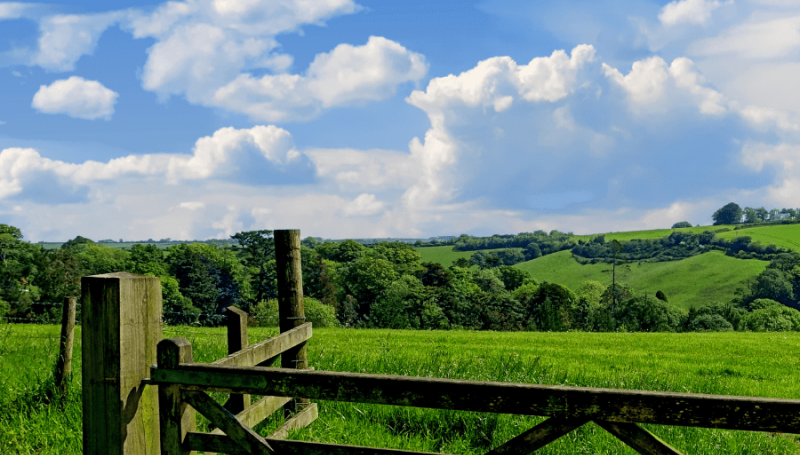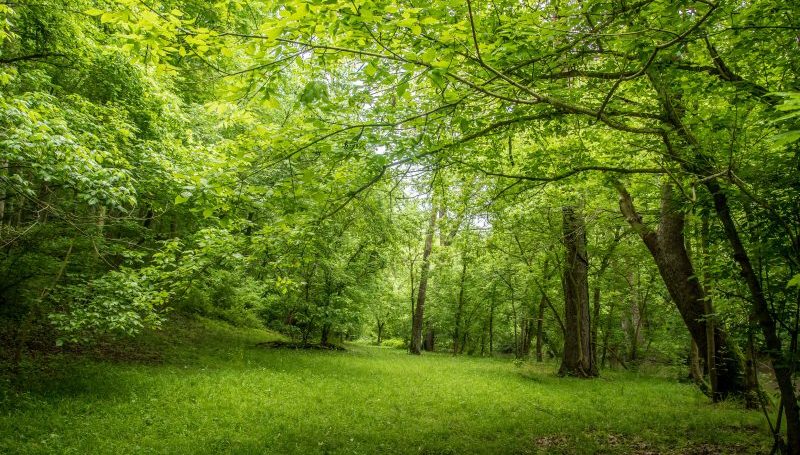It is proving to be a tumultuous year for planet Earth. Just a few months after the outcomes of COP26 (which many see as not going far enough), it’s as if our planet has decided to intensify the reminders of the harmful impacts of a warming biosphere. Damaging wildfires, floods and hurricanes have been happening more frequently across the globe . Now we are experiencing the impacts closer to home in the UK with wildfires of our own, extreme heat and drought. Couple that with the increasingly loud and unambiguous warnings from the scientific community, from the Intergovernmental Panel on Climate Change (IPCC)’s stark sixth assessment report, to the disturbing calls for more risk analysis and planning for global climate ‘end game’, we are entering unchartered territory of an increasingly likely sixth mass extinction. We weren’t around for the previous five but they all were associated with climate change.
So why, given the irrefutable science and the unfolding reality of the climate crisis, are we not treating it as the emergency that policy makers have declared it to be? Are we so unevolved from our primeval ancestors (as the New Scientist recently suggested) that we lack the ability to collaborate to try to prevent what is the greatest threat to civilisation? Certainly anthropologists (and physicist Professor Brian Cox) have previously pointed out our inability to co-operate and start planning only when crisis is at our very door.
That crisis now appears to be at our door. It is increasingly evident that even with only one degree of planetary warming above pre-industrial levels we are encountering very rapid changes in the climate system. Extreme weather events are increasing in scale, frequency, and consequence for humans and nature. As the atmosphere warms, the tipping points we have been hearing about for years are now happening all around us, further undermining the capacity of our already exhausted natural systems to provide mitigation.
Of particular concern is the scale at which climate breakdown (let’s stop calling it ‘change’) is happening relative to the average global temperature uplift, and much more quickly than the most sophisticated climate models could have predicted. Like Ernest Hemingway’s famous commentary on bankruptcy, first it is gradual, then it is sudden. It is starting to go quickly, as anyone with even a passing awareness of the news headlines can now see.
Is it too late to do anything? Political systems, national governments, international institutions, and even the efforts of some NGOs have failed to effect serious change. To have any chance of meeting the Paris Agreement’s objective of holding atmospheric heating below 2 degrees Celsius (1.5 degrees now looks extremely unlikely to all but the most optimistic), emissions need to stop growing and be reduced by around 45% by 2030. This seems unreachable. But inaction is not a solution – we must act and continue to think about what we can do as professionals, as individuals, and as communities.
Doing more each day, making changes in our consumption patterns (I gave up eating meat this year), adopting renewable energy, and a whole host of other actions can help, as can becoming more active in the debate and the urgency of our response. As environmental professionals I would argue we now need to go further and companies in our sector should discontinue working for organisations and on projects that contribute to increased carbon emissions or nature loss. We hear a lot in the media about greenwashing. If we don’t pursue a climate positive approach in our work then surely we stand guilty of similar hypocrisy. How can we be committed to the environment but leave part of that at our front doors each morning when we go to work? And how can we expect people working in other sectors to change?
Ethical business practices are indisputably part of the solution, but they require honesty, integrity and sufficient altruism by corporate leaders to genuinely consider models based on the ‘triple bottom line’ and not on prioritising shareholder value and profit. For that to happen across the economy requires genuine sustainability rather than tokenism in our businesses, the bravery to be a pioneer, and – importantly – stakeholder and employee pressure. We all have a stake so perhaps we should be asking, just how good is the company you work for?
There are increasing calls for a major shift in society and the economy as the only realistic means of effecting the changes needed to our governance and patterns of consumption if we are to avoid the worst effects of the climate crisis. So-called incrementalism might have worked if we had started adopting it 20 years ago but it’s too late now. It’s difficult to see – with all the other undesirable mega trends evident in the world today (many of them relate directly to ecological collapse) – where this transformation will come from and how. I doubt that technology can save us, and we don’t have time to wait to find out.
The rise of climate and social activism may, with sufficient support, usher in the sort of systemic change needed to avert climate chaos. Commentators such as George Monbiot suggest that movements need around 25% of the population to gravitate behind them for systemic change to be realised. The suffragettes made it happen for women’s rights, so perhaps it can rise from the collective efforts of communities, local and municipal governments (who are prepared to challenge the federal view of the world), the third sector, and ethical businesses. It’s a social re-ordering that recognises the deep interplay between human rights, health, education, limits to growth, and planetary health.
As environmentally motivated people, perhaps we need to think more about lending our voice, and action, to this call of nature. This is no longer a fringe element or a ‘green’ agenda; it is about the future of the planet as a place we can live without facing the worst of outcomes associated with ecological meltdown. We can’t all glue ourselves to runways in protest but we can have a good hard look at our lives, lifestyles, employers, the needs of our children and families, and decide how we can help bring about the changes so urgently needed. After all, it starts gradually and then it changes suddenly…




